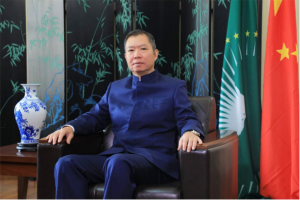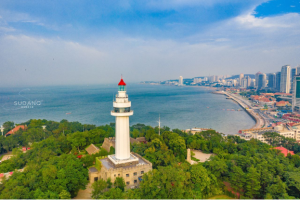
KANERE is on a mission to raise awareness about pandemic in Kakuma, one of world’s largest camps for displaced people.
For more than a decade, KANERE, the world’s first fully independent refugee camp news outlet, has defied funding shortages and other challenges to publish investigations and reports about life in Kenya’s remote Kakuma camp.
Now, with the vast settlement registering its first COVID-19 case, the publication arguably faces its biggest challenge yet.
“KANERE’s work is more important than ever,” Tolossa Asrat, managing editor at KANERE, told Al Jazeera via WhatsApp.
“Journalists are always on the front line next to health professionals in providing clear information to society to combat the pandemic, [and] KANERE is the only media which can provide information about the COVID-19 situation on the ground.”
Asrat’s team of refugee journalists is on a mission to keep residents informed about the dangers of the coronavirus pandemic amid increasing concerns that a potential outbreak could devastate the camp’s vulnerable population.
Accommodation for the nearly 200,000 people living in Kakuma, one of the world’s largest camps for displaced people, is typically squalid and cramped. Water is limited to public pumps, meaning physical distancing and good hygiene – the cornerstones of the World Health Organization’s (WHO) coronavirus guidelines – are near impossible.
For more than two months now, KANERE’s 10 reporters and editors have been working long hours to provide news and updates about new restrictions and hygiene advice, posting information on social media as well as printing copies and attaching them to notice boards around the camp.
This week, a man in his early 30s tested positive for the novel coronavirus after begin placed at quarantine facility at Kakuma upon his return from Kenya’s capital, Nairobi, despite a decision by Kenya’s interior ministry to prohibit all exit and entry to the camp in late April. The patient has since been moved to an isolation center while the test results of people who had come in contact with him came back negative.
“In this case, he was found in a quarantine facility, meaning that hopefully there is no local transmission,” Eujin Byun, spokesperson for the UN refugee agency, UNHCR, told Al Jazeera.
The Ethiopian Herald May 28, 2020





